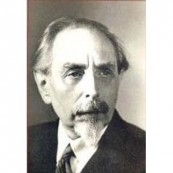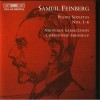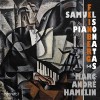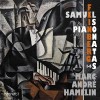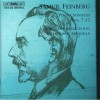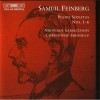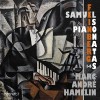Biography
Samuil Yevgenyevich Feinberg (Russian: Самуи́л Евге́ньевич Фе́йнберг, also Samuel; 26 May 1890, Odessa – 22 October 1962, Moscow) was a Russian and Soviet composer and pianist.
Raised in Moscow, he entered the Moscow Conservatory and studied under Alexander Goldenweiser.[1] He also studied composition privately under Nikolai Zhilyayev.[2] He graduated from the Conservatory in 1911, after which he embarked upon a career as a solo pianist whilst composing on the side. Memorably, he was the first pianist to perform the complete The Well-Tempered Clavier by Bach in concert in the USSR.[3] However, he was soon sent to fight in the First World War for Russia until he abruptly became ill and was discharged. In 1922 he joined the faculty at the Conservatory, relaunching his pianistic career.[4] By 1930, due to the political unrest in Stalin Russia, Feinberg was forbidden to leave the country, in part due to the fact that he was Jewish, except for two trips, to Vienna in 1936 and to Brussels in 1938. For this reason he is generally not well known outside of Russia. Feinberg was awarded the Stalin Prize in 1946.[5]
Feinberg never married, but lived with his brother, a painter.
He is most remembered today for his complete recording of Bach's The Well-Tempered Clavier and many transcriptions. He also composed 3 Piano Concertos, a dozen piano sonatas as well as fantasias and other works for the instrument. Pianist Tatiana Nikolaeva said that each of his sonatas was a 'poem of life.' Feinberg has been called "A musical heir to Scriabin,"[6] who heard the young pianist play his fourth sonata and praised it highly.





